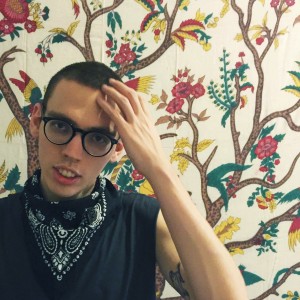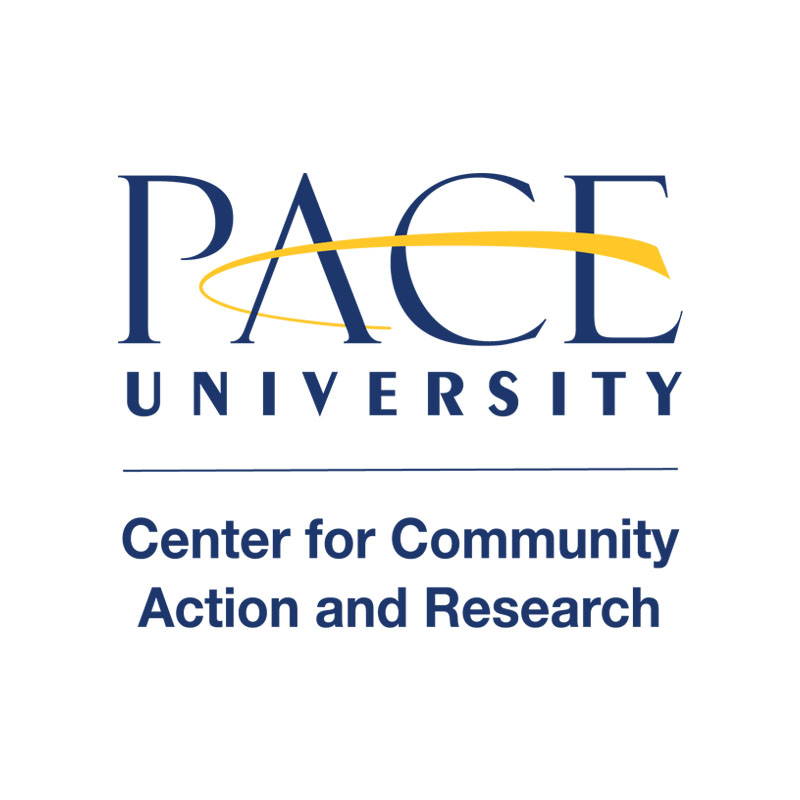Activist Spotlight: Chris Thomas
 Our first activist spotlight of the Fall 2015 semester is Pace University Senior Chris Thomas! Chris has been extremely involved in activism both on- and off-campus through his work with #PaceUEndRape, The Underground, and his involvement with Pace Protests and in the recent #BlackLivesMatter movement. Read on to find out more about Chris, his most memorable moment as an activist, and his advice for all aspiring Pace student activists!
Our first activist spotlight of the Fall 2015 semester is Pace University Senior Chris Thomas! Chris has been extremely involved in activism both on- and off-campus through his work with #PaceUEndRape, The Underground, and his involvement with Pace Protests and in the recent #BlackLivesMatter movement. Read on to find out more about Chris, his most memorable moment as an activist, and his advice for all aspiring Pace student activists!
Year of Graduation: 2015 (Graduating in December)
Major(s): Political Science & Peace and Justice Studies
Minor(s): Women’s and Gender Studies
Career Aspirations: Nonprofit work in the LGBTQA community – especially for homeless youth and trans/gender nonconforming communities. Also, I want to continue my ongoing occupation as a pop culture and editorial journalist at Milk Studios.
“While it is important to take to the streets and show solidarity for the cause, it’s also just as important to take time to reflect on your experience and look at your own identity and how your privileges play into your protesting and activism.”
What are some of the groups and projects that you have been involved with?
Since transferring to Pace University in Fall 2013 as a junior, I have worked with a number of really great groups. During my first year, I was involved with the Resident’s Hall Association and helped put together a number of events around campus with them. Coming into my second year last fall, the sexual assault scandal featured on the Huffington Post really shook me up and it led me to meet with Nelli Agbulos and Larissa Szilagyi who had just created a group called #PaceUEndRape, which advocates for sexual assault awareness. I took on a leadership role in that organization and towards the end of the semester, I also became really invested in the #BlackLivesMatters movement and started attending protests around the city.
This led to my creation of the FB group called Pace Protests, which has become a space for Pace University students to discuss issues and share information on social justice issues and events happening on and off campus. In the spring, I was contacted by Caitlin Boley about the beginning phases of an alternative press. A number of students had been expression frustration over the lack of quality and a refusal to focus on issues that mattered to students—like sexual assault. A core team of about six other students and myself began meeting and eventually created an online-only alternative press called The Underground.
After working on the magazine for semester, I spent the summer continuing my focus on journalism with an internship at Milk Studios. Toward the end of the semester, I was contacted by Marijo about becoming a member of the new sexual assault awareness team we had advocated for through #PaceUEndRape. After a three-day training and meetings with the head of security, housing, the counseling center, and various other offices around campus working on the issue, our group began planning outreach. We will be going into UNV101 classes over the next few months to educated and talk to students about sexual assault policies, safe sex, safety, and other issues that are essential as college freshman.
Can you elaborate on your leadership in #PaceUEndRape and The Underground?
During my work with #PaceUEndRape, I took on a leadership role alongside Nelli and Larissa as we coordinated meetings, did outreach, and worked with administration on a revamping of the sexual assault policies at Pace. Additionally, I was responsible for all of the meeting flyers and artwork for the group. Toward the end of the semester, I also created an information series of posters that were titled “LGBT Rape Culture: It’s On Us To Include All Survivors” and “5 Ways We Can Teach People How Not To Rape.” It was really exciting to create visual imagery to help educate people on the issue who otherwise would not have engaged with us through our student meetings.
While working with The Underground, I helped do a bit of everything. As with my time at #PaceUEndRape, I became responsible for the artwork on the website including the covers for the issues. I did two monthly segments, Artist of the Month and Monthly Playlist, as well as occasional news stories and formatting/editing of other segments of the site. This was a truly great outlet for me to combine art and music while continuing to advocate for social justice issues.
Tell us about your most memorable experience as an activist.
At the end of April, I helped organize a group of Pace University students who wanted to attend a large #BlackLivesMatters rally and march happening in Union Square. Among the group of students, I went alongside three of my roommates—Bree Daniels, Shannon Brennan, and Dan Martin. I had gone to quite a few protests the semester before when #BlackLivesMatters had taken a hold of the city’s activist community but this one was immediately different. Loudspeakers blared a robotic voice literally telling protesters if they blocked sidewalk traffic they would get arrested and if they went into the street they would get arrested. As the rally ended and protesters began to march, a contingent were viciously assaulted and arrested by police—an act of aggression we hadn’t seen in protests months before. What followed was a tense night of police resistance to our protests that terrified my friends and me. As the night led on and police became continually more violent, many of the Pace University students with us headed back to campus because of safety concerns. By the time we began marching on the West Side Highway, it was only my roommates and I left. Police quickly surrounded us from the front and back and aggressively pushed us and told us to clear the road and go into a one-lane sidewalk next to the street. Our group got separated in the panic but Bree and I safely made it to the sidewalk. I climbed onto a fence to look for Shannon and Dan and saw them standing with linked arms with another protester as they were all being arrested—luckily both made it out of jail by the next morning.
This is my most memorable experience as an activist not because it was successful but because it was the most honest look at the realities facing this country that I’d ever seen. No amount of classes on conflict and race relations could have prepared me for the sight of police officers grabbing black protesters off the sidewalk and throwing them into the street to arrest them while letting white protesters like myself go. Afterwards, it took a long time for me to even consider protesting again. I think that’s another important thing about protesting and activism. While it is important to take to the streets and show solidarity for the cause, it’s also just as important to take time to reflect on your experience and look at your own identity and how your privileges play into your protesting and activism.
What motivates you to be civically engaged?
I hate to sound like the cliché activist right now but I’m really just motivated to be civically engaged because I have hope that humanity can do better. I think for me personally, my motivation also gets complicated by the fact that I’m a white person, which means I’m afforded a huge amount of privilege in my daily life. It took a long time for me to know what “white privilege” is but once I learned about it, I set to work on acknowledging and checking myself. Activism is a bit ironic for me because while I want the world to be a better place and sincerely believe that it can be a better place, I also acknowledge that—and this will probably cause some pushback—most of the world’s problems can be traced back to whiteness. From European colonialism to the racist systems of oppression that we literally built this country on, a lot of negative shit has been caused by the white community. So, as a white activist, I am always looking at ways to contribute without taking away from the importance of communities of color. I’m not perfect and sometimes I overstep my privilege but activism is about making mistakes and learning from them through community building. That’s what motivates me.
Do you plan to continue to be an activist after graduation? How?
I hope to maintain my activism after graduation in some form. A semester ago, I would have confidently said that I planned to go into nonprofit work at some rad organization dealing with LGBTQA issues but my focus has changed since then. Right now, I plan to pursue activism through my journalism. Since starting at Milk, I’ve had the chance to talk to a lot of really cool people about issues I care about like transgender and gender nonconforming models, the politics of black maleness, the refugee crisis, and other topics. I’ve really become passionate about this form of activism and I’m hoping to eventually start writing more social justice-themed work for publications like Vice.
Any advice for students that would like to become activists themselves?
For the students looking to get into activism but may be scared or overwhelmed by it, I want to say that I understand and I used to be in your position. The good news is that you are all blessed to be attending a university in one of the most socially conscious and passionate cities in the world. There is always some kind of social justice event happening—from marches and protest rallies to slam poetry nights at your local cafe and zines about feminism. To be an activist, you don’t have to hit the streets and get arrested. Look on Twitter, Facebook, and Instagram for groups in New York that engage in activism. Seek out like-minded people who share the same passions you do. The absolute worst thing you can do for yourself and the world is sit around and do nothing. Join the Pace Protests group or add me on Facebook and shoot me a message. I’ll try to help you out as best I can with whatever activist outlet you’re looking to engage with.
Is there anything you would like to add?
It is absolutely essential to not only pick your battles but also take breaks. You cannot fight with everyone on Facebook over every issue that bothers you. You aren’t a failure of an activist if you don’t correct every problematic thing you see because you will literally never stop. The world is a problematic place and we can’t fix everything by ourselves. As important as it is to engage in activism, burnout is a very real and debilitating side effect if you don’t take care of yourself. Activism can be a great way to build communities and make friends who share your passion but you have to remember to love yourself as much as you love working to fix the world.





